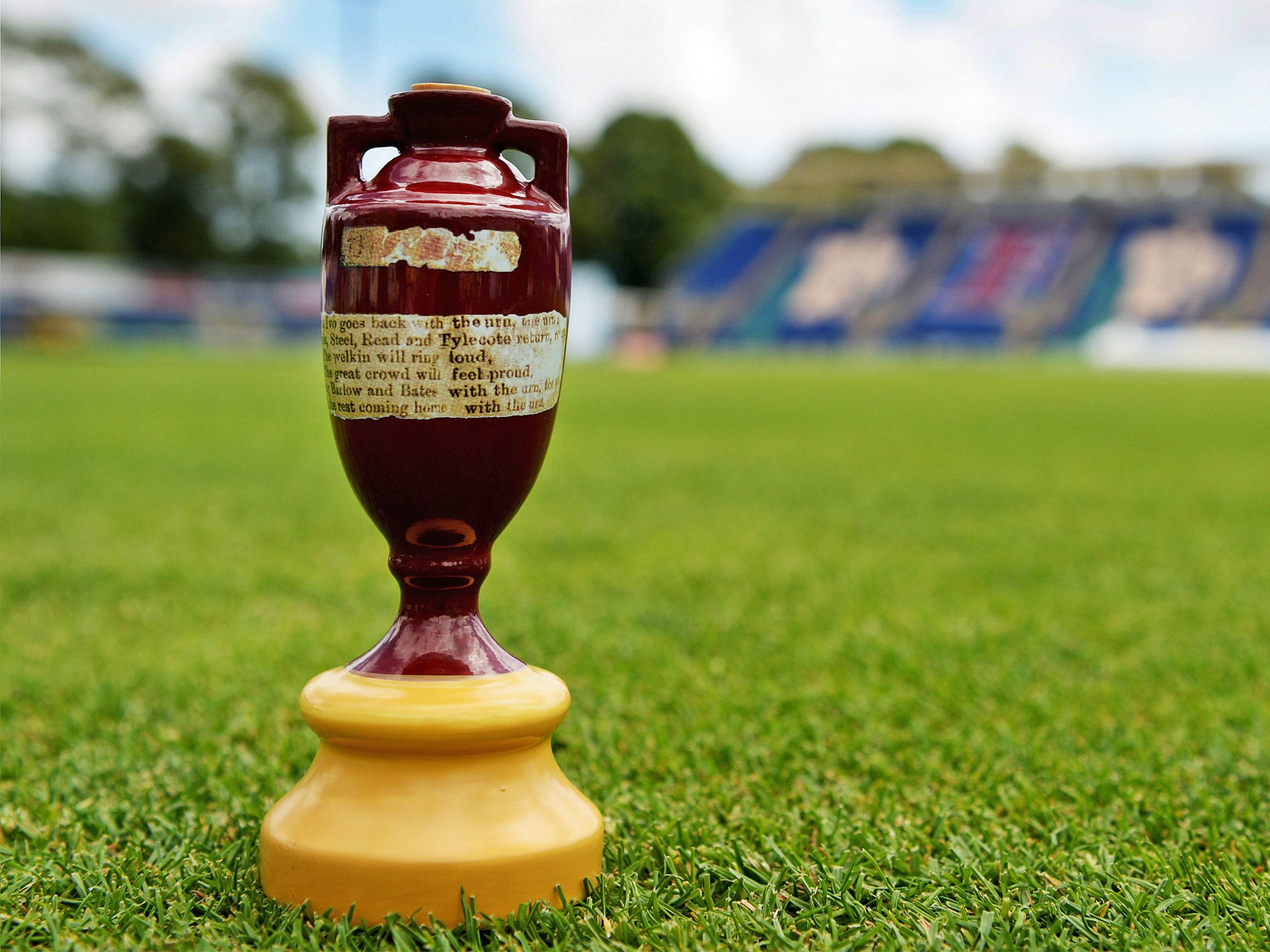Ashes 2015: Why a nation with no history or culture is so desperate to win
An international mash-up born itself in part of nationalistic disdain


On the cusp of the first Ashes Test in Cardiff comes confirmation from the visitors’ homeland of the time-honoured iron rule I made up some moments ago: under no circumstances should the star of one sport ever dip a toe into another. The one-time Australian Olympic swimming “legend” Dawn Fraser has disobeyed this, and finds herself in strife.
Fraser strayed into that other of Australia’s favourite sports technically known as Olympic Racism. Irked by his show of petulance at Wimbledon, she suggested that the Canberra-born Nick Kyrgios should return to the country of his ancestors (Greece on his father’s side – when better to emigrate there than now? – and Malaysia on his mother’s).
All of which ugliness beautifully sets the tone for the Ashes, an international mash-up born itself in part of nationalistic disdain.
So anguished were our own ancestors at losing a match to the uncouth visitors from Queen-Empress Victoria’s dominion across the seas that they regarded this affront to the English supremacy as terminal. “In affectionate remembrance of English cricket which died at the Oval on 29 August 1882. RIP” began a cricketing journal’s notice. “NB. The body will be cremated and the ashes taken to Australia.”
From that satirical obituary sprang not only the little urn, but what remains a uniquely captivating conflict. That said, there was a time when the absoluteness of Australian dominion threatened to break the Ashes’ hold on the imagination. But – a decade ago, and after eight successive English defeats – came the miracle to revive it.
In 2005, the Australians had won the first Test at Lord’s and looked sure to win the series comfortably. Minutes before the start of the second Test, their leading fast bowler Glenn McGrath trod on a rogue cricket ball while playing touch rugby and tore his ankle ligaments. Like Dawn Fraser and Rory McIlroy, who last Saturday sustained the identical injury playing football, he paid the price for ignoring the rule about sticking to your own sport.
That freak injury to the world’s premier seam bowler altered cricket history. With McGrath in the side, another routine Australian series victory would have removed even more of the Ashes’ fading lustre. In his absence, England won that Test by two runs and the fourth by a barely less coronary-inducing squeak. McGrath returned for the final game, fittingly at the Oval where it all began, but England held on to clinch the series 2-1. The apparently now teetotal Andrew Flintoff and his mates made their triumphal open-top bus ride and hilariously bleary-eyed trip to Downing Street, and the Ashes were reborn like a phoenix rising from the ... ah well, you get the drift.
For intolerable tension and unremitting drama, there will never be a series to match it. Very occasionally when watching glorious sport, the exhilaration is tempered by the poignant sensation that will you not see the like again. The first time Usain Bolt destroyed the 100 metres world record was such a case.
The 2005 Ashes felt the same. From the start of the second game to the end of the fifth, every mini-segment of every session was so indescribably riveting that cricket transcended its own boundaries to become, however briefly, a properly national sport for a nation craving diversion from the horrors of 7 July.
It made a ridiculously gorgeous swansong for live Test cricket on terrestrial TV – and for Richie Benaud, who retired as a commentator here, after what he considered the finest series he had witnessed, because he believed as an article of faith that the game should be available on free-to-air telly.
If the Australians are less studded with immortals than 10 years ago then that’s because the likes of McGrath, Shane Warne, Ricky Ponting and Adam Gilchrist were irreplaceable. If the England bowling line-up lacks the power of 2005, the quartet of Flintoff, Matthew Hoggard, Steve Harmison and Simon Jones was one for the ages.
But there are some gifted players on each side now, such as the murderously powerful Aussie opener David Warner. He has newly reprised his explanation for an attack on an English rival in an Australian themed bar before the start of the last home Ashes. Warner, a timely antidote to Dawn Fraser, claims that when he saw Joe Root wearing a green and gold acrylic wig as a makeshift beard, he believed the Englishman was deriding the Muslim beard of a South African player, and clocked him accordingly.
Another possible explanation – boozed- up Pommyphobia – hints at what makes the Ashes so special. It is less the respective personnel than the curious cocktail of fraternal hatred and cousinly affection that defines the Anglo-Australian relationship. The last thing a sensible columnist would dream of doing is to indulge the former at the latter’s expense. So from the planetary capital of plucky sporting defeat (Heather Watson, the Lionesses, etc), I wish Australia the best on the familiar grounds that, as a nation with neither history nor culture, she has no other way to attract the attention of a massively indifferent world than by winning at sport.

Join our commenting forum
Join thought-provoking conversations, follow other Independent readers and see their replies